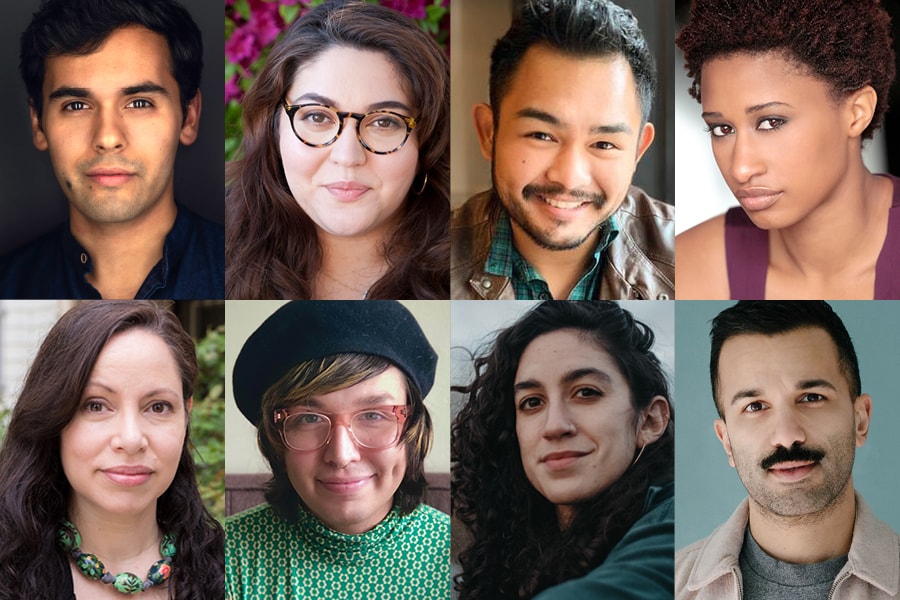This is part of a season preview package.
Every cohort of TCG’s Rising Leaders of Color is unique. That’s not just because each is a group of unique individuals, but because each cohort exists in a particular place and time. The national landscape, not to mention the theatrical landscape, is drastically different from when the cohort I was part of came together in 2017. It’s been well over a year since COVID shut down large sections of the country and the murder of George Floyd seemed to shake white America (if perhaps only briefly) awake to the lives of Black people and people of color. The inequities and sharper edges of America feel more pronounced, and people in all fields, including theatre, are questioning the ways we’ve structured labor in the country.
This is the unique backdrop for the current roster of Rising Leaders. With theatres mostly shuttered and only just now beginning to reopen, this group, perhaps like no other before, has had the time to think about and reimagine the future together. This group has tools and analysis that generations before them did not have. Inherited institutions and traditions are no longer sacrosanct. They see a system that has for too long devalued their labor, their humanity, and their lived experiences. They have realized that institutions to which they had given so much time, much of it unpaid, could not save them. Elected leaders could not save them. Instead, they saw what we often see during crises: People save each other. Communities save each other.
This cohort is busy envisioning new models for theatre that would shift not only how individual companies operate, but more importantly, how they value people, from the administrators to the artists to the audiences to the communities around them. I’ll just add that a lot has to be cut when you interview eight people; there is a lot more these inspiring folks have to say. And I think that the industry would do well to listen.
—TJ Acena
TJ ACENA: What are the mediums you work in, and what it is that draws you to them?
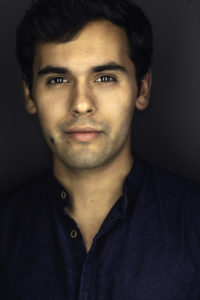
ADAM COY (he/him): I am a director, curator of vibes (producer), and actor. I’m drawn to the ritual of bringing people together to share an experience. I chase the feeling of having the energy of the air shift in a room and stretching what can feel possible in a physical space.
DANICA RODRIGUEZ (she/her): As a casting director, any art that needs a person to breathe life into a role is my kind of art. The pieces I’m committed to working on are pieces that center the stories and voices of the global majority, LGBTQ+ folks, and those most marginalized by the entertainment industry. I’ve always been excited about subverting power dynamics and critically looking at “how it’s always been done.” I carry that into my work with every project I’m attached to.
LIZ MORGAN (she/her): Before the pandemic, I was acting onstage and screen. Unfortunately, there have been so many places where I didn’t feel agency in my Black femme body, which inspired me to pursue writing as a way to have more autonomy in my creative work. Both of those disciplines feed into my current work as a Theatre of the Oppressed practitioner. Augusto Boal called this technique “rehearsal for the revolution,” which is why I’m passionate about it. When bodies tell stories onstage, it is a form of persuasive communication that can shift mental models and even policy.
GAVEN TRINIDAD (he/him/siya): My theatremaking is deeply rooted at the intersections of ritual, queerness, community-building, and healing. In my work as a dramaturg, I often use multidisciplinary approaches to activate me and my collaborators’ imaginations and hearts. I also just started playwriting and directing. I do all of this because I believe theatre is an essential tool to build community, capture history, and to be in active discourse with my Filipino/a/x and queer ancestors.
REBECCA MARTINEZ (she/her): I’ve worked as a performer, a teaching artist, a writer, a singer, and choreographer, but I became more interested in facilitating the entire experience of a performance, which naturally led me to directing. I get jazzed by work that is devised, site-specific, immersive, audience-connective, joy-filled, and music-forward. What draws me to these mediums is my deep love of storytelling as a means to bring people together, but also because directing, curation, and artistic producing give me agency to make choices about collaborators. I believe that a budget is a moral document and I take that responsibility seriously. Working from a place of abundance and being in a position to share wealth with others is a great privilege.
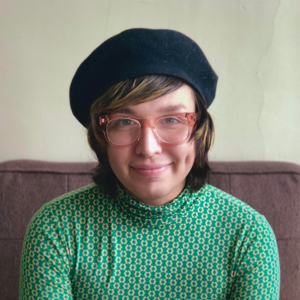
RUDY RAMIREZ (they/them): These days I am spending time embracing the chaos and cost of being stretched across multiple mediums. Performing onstage was certainly my entry point into the arts, but my interests splintered off over time into different channels like writing, devising, and arts education. To be an excellent theatre teaching artist is to be a brilliant director, a gifted imparter of skills, a generous holder of space, an innovative deviser, a speedy playwright, a compassionate mediator, an alchemist, a clown, a soft shoulder, and a mirror—to name a few. I think it’s the demand and challenge of constantly juggling and refining all of those skill sets that I love so much about teaching artistry.
SIVAN BATTAT (she/they): I am a director; I work in live performance but also increasingly in digital storytelling mediums. I’m also a community organizer, and I think of that as another medium. In many ways directing and organizing have the same skill set; we’re change makers in different forms. Additionally, much of the work I do is at the intersection of these fields creating space and resourcing Middle Eastern and North African artists.
ZI ALIKHAN (he/him): In our work, I identify primarily as a director, but I think over the past year and a half, I’ve been able to really sharpen my articulation of what I think that means. I’ve always said that a director’s job is not really to be the singular voice of a project or a collaborative, but rather to facilitate that every collaborator is able to bring their best work to the room every day. So yes, I am a director, but what that means to me is that I facilitate the communities that surround a project and ensure that we can all breathe life toward our collective goals every day.
How have you navigated the last year?
COY: It was extremely challenging; I feel most alive and in my own body inside of a rehearsal room, and being in that space wasn’t possible. I reflected on if I even wanted to continue down this path. That type of reevaluation I think is really healthy. The initial stoppage made me realize that the pace I was going wasn’t super sustainable. I reevaluated and reimagined structures with both my theatre company, the Egg and Spoon Theatre Collective, and the former resident artists of the Flea, the Fled. More opportunities worked out this year than I really could have imagined. I got to direct for my alma mater, Syracuse, got a few acting gigs, and have been meeting artists I really want to produce.
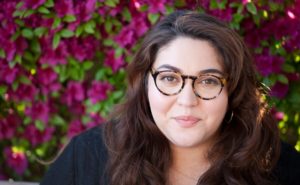
RODRIGUEZ: I began 2021 as a furloughed theatre employee. I felt like this was some sort of biblical-level sign that this industry wasn’t for me or that I wasn’t good enough to survive as a theatre artist. It took a lot of self-reflection to realize that was not true. After taking a moment to mourn, I began my next chapter as a freelance casting director. It was a lot of reading, research, and reaching out to folks for advice, but all of that work brought me to some of the most amazing relationships and projects of my career thus far.
MORGAN: I’m surprised by how consistently I’ve been able to work, but I also want to de-emphasize my gigs. It’s been a lot to navigate. I had to prioritize radical rest and human relationships above all else. Professionally, I have discovered the infinite depths of my adaptability and problem-solving skills, which has made me a better educator. I’m primarily collaborating on Zoom and even VR (virtual reality) occasionally. I don’t hate it!
TRINIDAD: As a brown kid from an immigrant family in Alphabet City, I saw firsthand how quickly the ER rooms filled with people who looked and sounded like me at the beginning of the pandemic in New York. I had to reevaluate my responsibilities as an artist citizen to use art as a tool to empower myself and others. When my father was in the hospital with COVID-19, I sent him videos of me playing ukulele and singing his favorite songs. Everything I now do in my personal life, work, and in my artistry carries the same care, love, and intention as I did to make those videos for my father.
MARTINEZ: Last summer I was hired as the associate artistic director at WP Theater, and I’m grateful to them and the BOLD Women’s Leadership Circle for the work. But honestly, with a baby (and now toddler) at home, I’m just glad that we’ve gotten through this far all right. I don’t take that for granted, especially that there are so many folks we’ve lost in this past year.
RAMIREZ: To put it simply, the last year and a half have been a wild, non-linear journey for me and for countless others. Up until last year, my scope of work primarily included performing and teaching. However, I have found myself in the unfamiliar waters of community organizing and advocacy work within the theatre industry. I connected with and dreamed alongside other BIPOC artists in the Theatre for Young Audiences (TYA) channels. We found a little bit of funding, crafted a national affinity space, and began work on an ambitious project of our own, the Anti-Racist & Anti-Oppressive Futures for Theatre for Young Audiences: An Interactive Guide. I’m proud to have served as curator for the project.
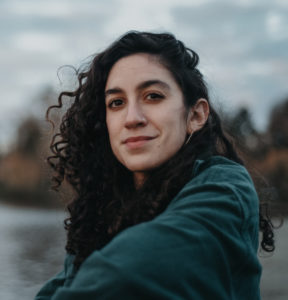
BATTAT: Professionally, by deeply investing in relationships and figuring out how to have them exist not in person. Personally, the same: investing in the people in my life I’ve been paying attention to and take a lot of time for that. I’ve been clarifying my values, grounding in what nourishes me, and reading a lot.
ALIKHAN: As everything started to go away at the beginning of quarantine, and you couldn’t really check in on work, the only things we had to check in on were ourselves and our communities. Knowing myself more in this time has given me the clarity (and then the agency) to pursue fuel in my relationships, in my work, in what I say yes to, and to actively let go of the mindset that tells me that saying no means that everything comes to a screeching halt. I’ve started to imagine the entire ecosystem of our industry a lot more, and to remember that what might be imperfect for someone else in their moment might be perfect for me in mine, and vice versa, and that the honest pursuit of and clarity within one’s goals is actually an abundant way for us all to thrive.
This last year has brought a lot of changes to theatre as an industry. What is the biggest change that you’ve experienced firsthand? And what hasn’t changed but still needs to?
COY: Early-career artists in exploitative relationships with institutions taking power back. I was an organizer for the resident artists at The Flea and I do believe that our work has had an impact on these apprenticeships, internships etc. throughout the industry. Theaters that have benefitted for decades on hundreds of hours of free labor per month have to reimagine how they operate. It’s my hope that this will create a more equitable pipeline for emerging artists.
RODRIGUEZ: While the BIPOC theater community had already been engaged in affinity groups, EDI work and self-preservation, it felt like our white counterparts were finally hearing us and waking up. Instead of screaming into the void, we were brought into rooms to talk about our experiences and our ideas on making theatrical spaces more equitable. But even more electric was the connection communities of color and artists of color were making with each other. We held each other up when no one else could or knew how. But let me be very frank, the Great White Way is still just that: white.

MORGAN: The change that felt the most personal was the unraveling of the Flea Theater, where I was a resident writer for two years. Personally, I lost a lot of work in the aftermath. But I also think we benefited from fully engaging the power of collective action against oppressive industry practices.
TRINIDAD: I’m excited by the revaluation and reckoning of what equity, diversity, and inclusion truly means in American theatre and in theatre education programs. However, like many, I am still waiting for meaningful action taken by theatres to reckon with their own pasts of racism, ableism, and lack of accessibility as their doors begin to reopen at a fast pace. We as artists need to deeply examine institutional structures in place that allow these wrongdoings to happen, from administration, to rehearsal room protocol, community engagement, etc.
MARTINEZ: That some predominantly white institutions are putting their houses in order to make them a space where global majority artists are not just welcomed, but can thrive. More of that. As for what hasn’t yet changed: Funders need to stop with rooted-in-racism judgements about global majority arts organizations, viewing them as “unprofessional” when the rigor that goes into artistic work is the same as the predominantly white institutions (PWIs) who receive many thousands and sometimes millions of dollars from those same funders. Many of those PWIs have received money to support new initiatives to build relationships with communities that global majority organizations have been nurturing and supporting for decades. Full stop.
RAMIREZ: The thing that sticks out the most is of course the significant increase of conversations around anti-racism in theatre institutions.
- What does active solidarity look like?
- Where must theatres acknowledge and own impact for past racial harm?
- How can organizations evaluate and address systemic issues that negatively impact historically marginalized people?
All of these questions and more inevitably sprout up in conversations I find myself facilitating in my freelance consulting work. I think there is a lot of value in a well-crafted question. It is a very generous container.
BATTAT: It’s interesting, as a community organizer, to see the language and work of community justice showing up in theatre spaces (abolition, restorative justice practices, accountability, coalition building). This is the first year I’ve seen kernels of that in PWIs (we’ve been in those conversations in theatres of color for a long time). It’s helped me articulate what’s lacking for me in my theatre work: an understanding that we are part of an ecosystem of change makers. And to be part of that, the theatre industry can’t perceive ourselves as the whole story. We need to be in community with work happening across so many sectors. And I think these are ways our community and justice organizations can really benefit from cultural work: It can be a place where the vision of our liberation is imagined, created, manifested.
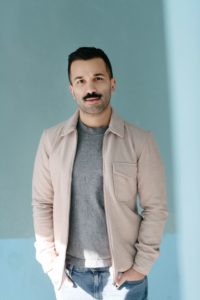
ALIKHAN: Something beautiful that’s been happening over the past few months (and is for sure still taking some getting used to) is being in conversations with artistic leaders in a directorial capacity that don’t quickly lead to feeling shut down. A few weeks ago, an artistic director remarked that it was her job to listen to the needs of artists who hadn’t had seats at her theatre’s table before, and to actively pursue the implementation of those needs, those desires, and those practices into her institution. I probably smiled for three days after that call; it felt like such a revolution.
What is something you need to support you as an artist right now?
COY: Mentorship. Space. A job.
RODRIGUEZ: My gut reaction is to scream: Everyone get vaccinated! I understand that this medical necessity has become extremely politicized, but let’s face facts: Gathering is essential to this industry and art form. I miss being in rooms with people and the abundant joy that bubbles up in those spaces, so if you love this art form as much as I do, please go get your vaccine.
MORGAN: I would certainly feel supported if BIPOC institutions were well-funded. There’s been so much energy this season around “white American theatre,” but I really would love for some of the smaller institutions that helped me develop my work to have more space and programming for like-minded individuals.
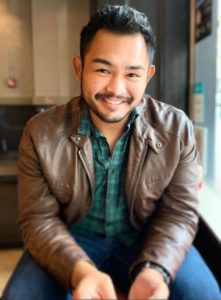
TRINIDAD: Time and space to process emotions and heal wounds. I didn’t realize how the pandemic affected my body until recently. My mental health was challenging to gauge as I felt so many things were happening to me and around me, I didn’t have the time and tools to check in with myself.
MARTINEZ: Good, safe childcare that doesn’t cost the majority of my salary and a short commute. More people understanding the efficacy of vaccines (and getting vaccinated).
RAMIREZ: It’s no secret that a horrifying number of artists and arts administrators were left to fend for themselves throughout the pandemic. I think freelancers in particular were largely left scrambling. Our contracts simply vanished like wisps of smoke in clenched fists. While I have worked hard to keep myself busy and “Frankenstein” a life together, I truthfully am in need of a long-term job. One that not only offers stability and longevity, but is also predicated on a belief in my skills, in my capacity to grow, and in my ability to continue to cultivate rich change.
BATTAT: An ethos and politics of rest. We cannot work at the pace we were before. And within that we need more class analysis; without that we can’t have ethos or rest that’s relevant. I also need accountability. Personally, I’ve been harmed a lot by institutions and individuals. There’s been no space for healing or transformative process around that. The ethos is not to prevent the possibility of hurt at all times—harm will happen—but to have a thoughtful comprehensive way we approach it when it does, leaning on decades of work building transformative, restorative models, and of course to reduce it as much as possible.
ALIKHAN: Space, time, respect, engagement. To not have to ask to be valued for what and how I know I should be valued, and the expectation that everyone else in the room will be given the same respect. Openness to transformative conversations and then transformative actions, and then a commitment to not let that transformation get dormant.
What are you most hopeful about for theatre?
COY: That all this change is only the beginning. That the leadership changes at institutions around the country will create access points for people and communities that traditionally have been excluded from the theatre. The artists that come out of that inclusive access will create theatre that I want to be a part of.
RODRIGUEZ: My partner, who also works in theatre, said something that hit me pretty hard when he was half asleep: “I hope theatre learns from this pandemic. I hope they learn to prioritize rest and care for all of us that work in the industry.” He fell asleep seconds after saying this, and he is completely right. Give people unlimited sick days, support folks when they take PTO. Let’s get rid of the intense sense of urgency. We make theatre; we don’t work in the ER.
MORGAN: The next generation of theatremakers are not going to accept the status quo. Folks are gaining the political analysis and the people-power skills needed to disrupt white dominant culture and make other choices. I really hope we can move into an era where institutions are doing the ethical thing not because it’s trendy or mandated but because equity is part of our industry’s embedded cultural values.
TRINIDAD: There is a mythos that the arts, particularly theatre, are welcoming of all persons, but it has been proven false to me as a brown queer person, as a child of immigrants, as a person diagnosed with mental health challenges, etc. But I’ve been moved by the mobilization of global majority artists banding together through digital means to combat the pervasive white supremacy in our industry. When the days are tough, I now have a larger group of people who will cheer for me, and naturally I do the same for them.
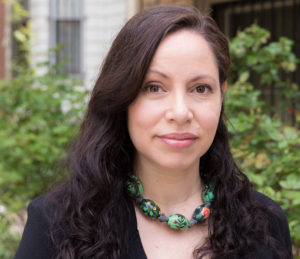
MARTINEZ: Theatre isn’t going anywhere. However, my hope is that the industry gets serious about dismantling hierarchical spaces that uphold white supremacy, and no more of this mess of rewarding unhealthy practices that lead to burnout, trauma, and emotional and physical injury. Get rid of more toxic leaders, even if those toxic leaders are “making money” for the institution. I hope that we think outside of ourselves, to our communities, to the larger theatre community in this country, and beyond these made-up borders to folks in other countries. We often get so insular and isolated in our work that we miss out on opportunities for growth and connection. I hope Indigenous artists’ work is produced everywhere.
RAMIREZ: I am most hopeful for the building of a coalition across institutions that are dedicated to actively listening to historically silenced voices and reflecting on the many ways they have harmed these communities.
- What does genuine repair look like?
- How can we reimagine theatre’s function, form, and content to better serve and support BIPOC, disabled, undocumented, unhoused, poor, queer, and trans communities and artists?
- How can we learn from each other along the way?
I am a firm believer in the tenet: Individually we know little, but collectively we know a lot. To me, this is a gorgeous reminder that I am so much more effective as one tile in a massive mosaic of knowledge than on my own.
BATTAT: The truth is, most days I don’t feel particularly hopeful. But the recent TCG conference where we heard from such a powerful new generation of theatremakers gave me hope. I’m a part of conversations with peer directors of mine about not tolerating things we’ve always been taught we “need to tolerate” from white supremacy, grind culture. The work I’m doing with my collaborators at Noor Theatre is really exciting and hopeful to me too.
ALIKHAN: I think the time away, the time to think, the time to prioritize ourselves and what we want to center in our work has hopefully also instilled in us the ability to walk into a world where we aren’t held to a binary that something either works or it doesn’t. I’m starting to see this being practiced as a kind of softness, and inquisitiveness, a deeper listening among all of us working together. I’m hopeful for this kind of generosity with ourselves and with each other, and for the ripples of totally new things we’re going to discover that come from it.
Do you have any projects coming up this fall/winter that you want to plug?
COY: Egg & Spoon is wrapping up our Incubation Series with a workshop of Black Girl Joy by Phanesia Pharel in late September. Be on the lookout for Fled programing!
RODRIGUEZ: I will be returning to work with Broadway for Racial Justice as one of the trainers/educators for the Casting Directive. Last year’s program was a massive success and we built this incredible community of BIPOC casting professionals. I can’t wait to welcome a new cohort who will be taking this industry by storm! So please keep an eye on BFRJ socials and the trainers’ socials for when the application goes live.
MORGAN: Most of things I’m working on are to be confirmed or in deep, deep incubation, so I hesitate to give away too much. But keep your eyes peeled for what I’m cooking up with Broadway Advocacy Coalition. I’m very excited.
TRINIDAD: I am currently writing a play called The Believers, a personal exploration of mental health issues, and hope to have a reading this October. I am also dramaturg-ing with the one and only Roger Q. Mason on their play Waiting for a Wake, which follows a multiracial African American/Filipino family trying to survive the contemporary U.S. in their pursuit of the mythic American Dream.
MARTINEZ: Two things I can share: I am working on a sound installation/audio tour of WP Theater; it’s going to be a self-guided journey that invites audiences to feel at home in our theatre. I am also directing a filmed excerpt of the incredible musical Little Duende for NAMT.
BATTAT: I’m directing a workshop production of Layalina by Martin Yousif Zebari in the Goodman New Stages Festival. It’s an intergenerational, intercontinental, gorgeous family story, with queer lives at the center, set in Baghdad and Illinois. I’ll also be showcasing a musical as part of the Drama League and I’ll be serving as the directing fellow with the Roundabout, where I’ll have a few workshops of new projects in development. I’ve got a punk band project, and a music video in the works this year too, stay tuned. We’ll also have some programming from Noor coming up this year. Inshallah, we can jump into these projects as planned!
ALIKHAN: If you’re on the West Coast, come see The Great Leap at Portland Center Stage (co-produced by Artists Repertory Theatre) in the winter. And if you’re on the East Coast, come see Snow in Midsummer at Classic Stage Comapny in the spring. Or if you’re my mom, come see both!
TJ Acena (pronouns) is a writer in Portland. He was a member of the Rising Leaders of Color’s 2017-18 cohort.

